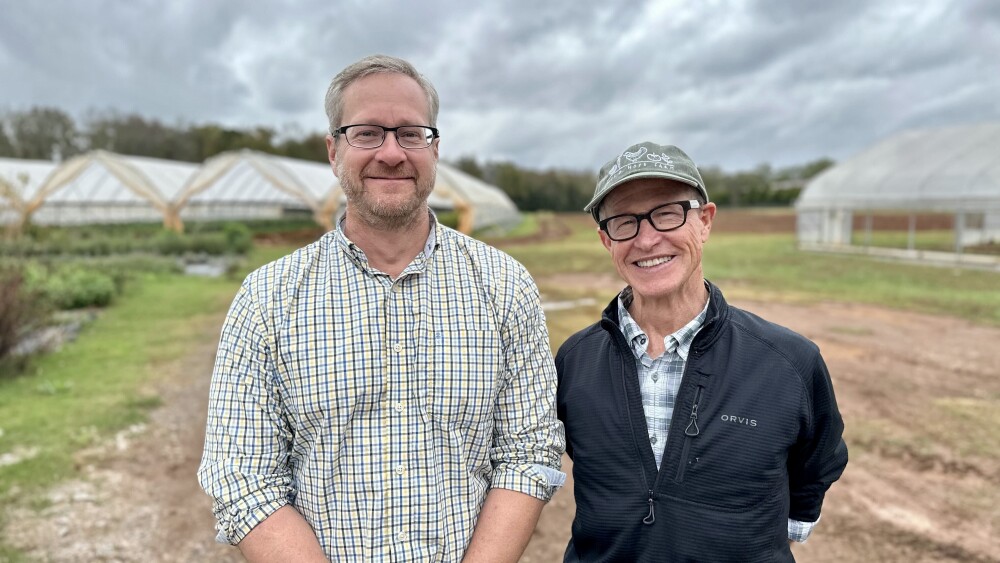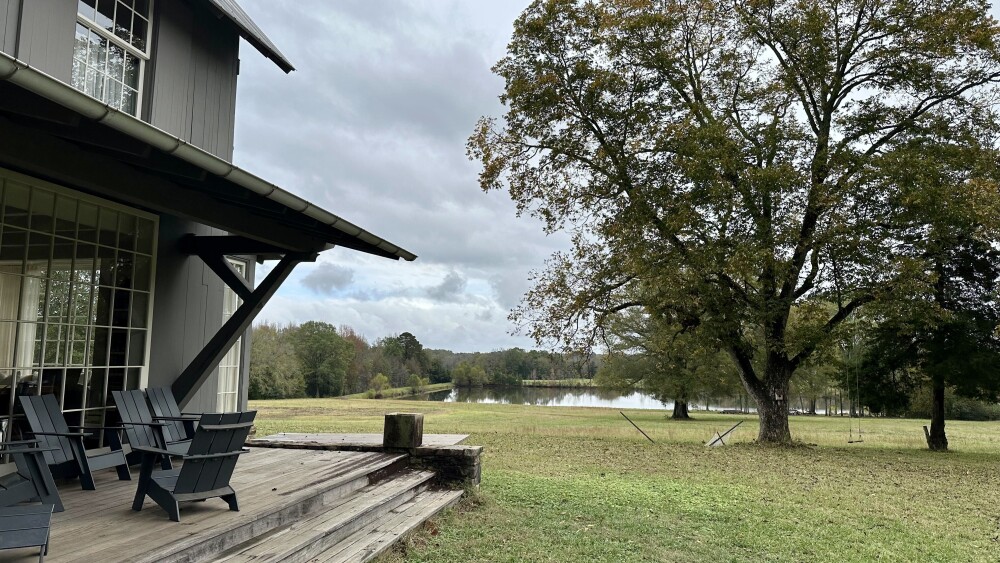How often do you wonder where the food on your plate comes from?
“There’s a really small percentage [of the population] providing one of the primary needs of human life on the planet,” shared Aaron Newton, Carolinas Program Manager for The Conservation Fund.
“This is a lifestyle, it’s a profession, and there’s a community of people that love it. And you feel the love,” said Tim Belk, the former CEO of Charlotte-based Belk department store and current owner of Wild Hope Farm.
City Editor Jack, here. I recently toured Wild Hope Farm, where crops are raised and harvested for the Uptown Farmer’s Market. While gazing at the rows of leeks, kale, and Swiss chard, I learned how critical and precarious farmland around Charlotte has become.
Agriculture is a $100+ billion industry in North Carolina — including vegetables, cotton, poultry, and livestock.
“Climate is definitely to our advantage,” said Newton, who credited the moderate temperatures and ample rainfall for creating an ideal ecosystem to grow crops like sweet potatoes, tomatoes, and peppers.
Subsistence farming played a key role in the Charlotte-region. The land provided crops and livestock to feed a rapidly-growing population heading into the 20th century before farms evolved into factories. The job boom led people to settle in the Piedmont and help grow Charlotte into the metropolis it is today. There’s plenty to love about living in an ever-growing city, but increasing development means less space around the Queen City for farms impacting local farming and food production.
That’s why action has been taken to preserve farming in the Charlotte Metro.
The Conservation Fund’s Carolina Farms Fund announced its first farm partnership, which will expand Deep Roots CPS Farm — a seven-acre urban farm on the west side of Charlotte. The farm grows fruits and vegetables + raises goats, chickens, and bees. Through their partnership, owners Cherie and Wisdom Jzar will enter a four-year lease to purchase a 44-acre farm in Union County, expanding operations and widening the farming footprint in the Charlotte area.
“We are committed to enhancing food access and believe in fostering strong community partnerships and are deeply rooted in the community,” said Cherie Jzar, co-founder and president of Deep Roots CPS Farm.
The Carolina Farms Fund launched in Charlotte in November 2023. This new initiative of The Conservation Fund aims to buy properties and conserve them as working farms before being matched with a reputable farmer. From there, an affordable path to ownership is created while establishing connections with market partners. These farmers aim to provide fresh, locally-grown food people can find through local markets and community supported agriculture.
Tim Belk shared why the Czars were the right pick to carry this torch. “They showed interest. They showed passion. They kind of picked us.”
Together, Belk and the Carolina Farms Fund have successfully raised $4 million of the $17 million private funding goal for the next decade.
“We want to have more resiliency in our food system,” said Peanut Belk, Head of Business Operations with Wild Hope Farm. “We want there to be food on the grocery store shelves and we want to help support those people who are helping to make it happen.”
Today, Carolina farmers face challenges from an evolving landscape and growing development pressures. Charlotte’s farmland is at risk, with more than 19,000 acres predicted to be lost by 2040, including 14,500 acres of the state’s prime agricultural land.
Charlotte faces a critical turning point, with more light being shed on healthy eating and a growing demand for locally grown food. To help in this fight, The Carolina Farms Fund announced a goal of conserving 5,000 acres within 75 miles of Charlotte over the next 10 years.
“We’re definitely looking for leaders,” expressed Newton, who is part of leading the effort to find a new generation of Carolina farmers. “They’re all different types of people who are interested in agriculture. It’s fundamental to us as a people, the food we eat, and it’s easy to fall in love with the idea of growing growing the food that you’re going to eat.”
“I think there’s just a big opportunity for farms in this area to build,” shared Belk. “It’s never the same, it’s always changing. We can learn more, we can improve it, and we can share information from one farm to another. We can help these farmers survive, and grow, and prosper.”















